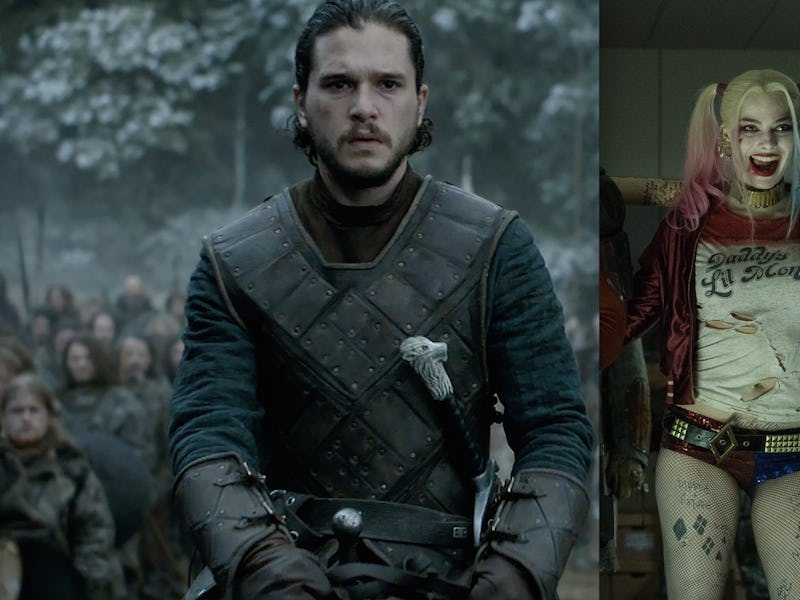What the DC Cinematic Universe Should Learn from 'Game of Thrones'
Everyone compares DC to Marvel, but there's another popular franchise DC should use as an example to fix itself.

With Suicide Squad being the third DC superhero movie to tank in the critical community, the blame has to go somewhere. The Hollywood Reporter ran a piece that spoke of a troubled production filled with studio interference, while a former Warner Bros.’ employee penned an open letter to the studio head criticizing his approach. Although you could wave these off as rumors, it would be silly to assume there’s no fire where the smoke is billowing. Besides, you don’t even need to read the Reporter story to know this movie had a rushed production and too many cooks. You only need to sit through a few minutes of Suicide Squad to see that. It’s the most tonally inconsistent movie to come out in years, with whiplash jumps between scenes that each feel like they belong in their own separate films and editing that doesn’t cohere. There is no way that is purely David Ayer’s vision or the work of the normal amount of editors unless everyone involved had several brain-altering sessions with Jared Leto’s Joker.
Now, assuming these reports contain truth and there is a high amount of pressure and exec involvement, theoretically, it makes sense for these studios to monitor this property more closely with each passing critical flop. But there’s a far better and more successful tactic: The HBO approach. Sure, movies and television are different, but Game of Thrones actually has a lot in common with superhero fare. It’s a franchise that is currently the largest of its kind in the world, it’s a huge money-maker for its parent company, and its production is strenuous while its schedule runs in one-year intervals.
But, in spite of its scope and high stakes for all involved behind the scenes, it manages to tell a coherent story. We’d be naive to think that hundreds of eyes are not scouring every detail, but at the end of the day, creators David Benioff and D.B. Weiss’s voices ring loud and consistent.
On the other hand, each new DC movie had a more muddled voice than the last, culminating in Suicide Squad. Its storytelling is so slapdash that, at one point, one member of the Squad (Captain Boomerang) throws up his hands and leaves the group; in the very next scene, he’s back with them. No explanation is given for his presence or motives, the two scenes just fit together as if whoever is steering that story fell asleep at the wheel. Or different editors had different ideas of Boomerang’s place in the story. We might never know, because the movie didn’t bother trying to have it make sense.
The Hollywood Reporter piece speaks of how the film was written in six weeks — another element that’s very easy to believe when you watch it — partly because there are too many stakes to moving its release to a later date. But, is the pressure to deliver according to a set timetable really worse than making movies that are panned by critics and fans alike?
Game of Thrones theoretically has a set timetable of delivering ten-episode seasons in one year intervals, and, yet, HBO is letting Benioff and Weiss push Season 7 back a few months and shorten the final two seasons.
Many people naturally compare DC to Marvel, and it’s true DC could stand to learn a few tips about building the individual stories before diving into the big group movie. But as DC continues to flail and make increasingly sloppy movies, they should look to how Game of Thrones is handled. It’s a many-headed-monster that could easily feel like it comes from too many conflicting visions, but it stands as a living example for how the DC film universe could be managed in a way that lets the creators do their thing.
Either that, or stick a fork in the whole endeavor and accept that valar morghulis.